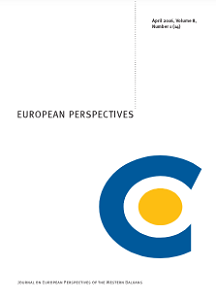Motivations of the Common European Competition Policy and Lessons for the Western Balkans
Motivations of the Common European Competition Policy and Lessons for the Western Balkans
Author(s): Ábel CzékusSubject(s): Politics, Regional Geography, Economic policy, EU-Approach / EU-Accession / EU-Development
Published by: IFIMES Mednarodni inštitut za bližnjevzhodne in balkanske študije
Keywords: EU; competition policy motivations; economic integration; Western Balkans;
Summary/Abstract: Common competition policy is one of the original common policies of European integration. Founding members of the European Economic Community recognised properly the need for a Single Market regulating regime that became one of the cornerstones of the integration. Market regulation has several palpable characteristics due to its traditional and topical tasks. We discuss original task of the competition policy that ensures a legally unified business environment in the Single Market. This is the fundament of the policy mentioned since without an EU-level set of common rules the goal of a full and undistorted economic integration couldn’t be achieved. Therefore, competition policy considerations laid down in the Treaty of Rome have endured stormy decades of EU’s history. Well-shaped competition policy rules, on the other hand, constitute an enduring but flexible framework for additional economic purposes. Establishing a growth-friendly business environment, contribution to the exploitation of efficiency gains or supporting research and development could be mentioned as the most important economic actions fostered by the current common policy. In line with this duality we scrutinise if there has been a paradigm shift in the policy. Non-EU countries of the Western Balkans have to consider these incremental features of competition policy in the harmonisation of their legal systems to the EU law. They have to make consistent their competition regulations with the EU legislation in the light of their forthcoming EU accession and Single Market entrée. By our hypothesis competition regimes of the countries observed are far from being consistent with the EU accessing prescriptions. Disaggregating the policy, we assume countries’ antitrust regimes could be partly labelled consistent with EU expectations while State aid practices ought to be restructured. Nonetheless, integration of their markets into the European Single Market progresses slowly. We address this question by reviewing their competition policy regimes.
Journal: International scientific journal European Perspectives
- Issue Year: 6/2014
- Issue No: 2 (11)
- Page Range: 35-61
- Page Count: 27
- Language: English

